





Assistant Professor
Department of Health Education and Behavior
Phone: (352) 294-1067
Email: mberry@ufl.edu
Meredith S. Berry joined the Department of Health Education and Behavior in 2018. As an experimental psychologist, she has several primary areas of research including: 1.) basic processes of operant reinforcement, learning, memory, and behavioral economics often in the context of drug misuse and other health-related behaviors, 2.) the evaluation of abuse liability and behavioral and cognitive effects of various drugs, 3.) the intersection of human and environmental health, benefits of nature exposure, and environmental conservation. Closely related to her work on the intersection of human and environmental health, she is exploring novel applications of the benefits of nature exposure to issues of drug misuse. Her current focus on clinical drug misuse research stems from a foundation of preclinical and clinical training in behavioral pharmacology, and basic and translational behavioral research in decision-making and behavioral economics.
Before joining the University of Florida, Dr. Berry completed her postdoctoral training in the Behavioral Pharmacology Research Unit at the Johns Hopkins University School of Medicine. She received her Ph.D. in Forest and Conservation Sciences at the University of Montana, her M.S. in Experimental Psychology from Utah State University, and her B.S. in Psychology from the University of Florida.
Dr. Berry continually engages in professional service including the program chair for Division 28 (Psychopharmacology and Substance Abuse) of the American Psychological Association’s 2019 convention. She also serves on the Board of Editors or ad hoc reviewer for over 20 academic journals spanning preclinical and clinical research topics of behavior analysis, decision-making, behavioral economics, behavioral pharmacology, substance use and misuse, risky sexual behavior, conservation, and conservation psychology. Dr. Berry is the recipient of numerous early-career scholarship and fellowship awards including awards from the National Institute on Drug Abuse and the National Science Foundation, and her research is frequently covered in popular press news outlets such as Scientific American, Pacific Standard Magazine, Fast Company Magazine, and The Huffington Post.
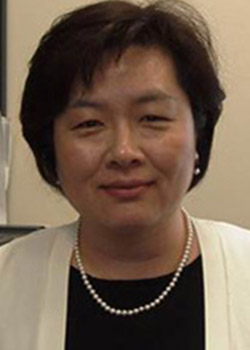
Assistant Professor
Department of Health Education and Behavior
Phone: (352) 294-1811
Email: jwcheong@ufl.edu
JeeWon Cheong joined the Department of Health Education and Behavior in 2015. As a quantitative social psychologist, she has two lines of research: 1.) methodological research in mediation analysis and 2.) research in substance use and related risk behaviors among adolescents and adults. Mediation analysis is a family of statistical methods that assesses the effects of a mediator (a third variable intervening in the relation between the independent and the outcome variables) and investigates the causal mechanisms. As an expert on mediation analysis and longitudinal modeling, she has published multiple peer-reviewed journal articles and handbook chapters on methods for testing mediation, with a focus on longitudinal mediation, wherein changes in the mediator and the outcome are modeled based on repeated observations measured over time. Closely related to her work in mediation analysis, her substantive research focuses on risk and protective factors of substance use and related risk behaviors, as they can be targeted to modify in prevention/intervention settings and explain underlying mechanisms of how intervention/prevention programs work. For this line of research, she has worked with large-scale longitudinal prevention studies for children and adolescents and investigated the role of social environmental factors, particularly parents and peers, in shaping the developmental course of adolescent substance use.
Before joining the University of Florida, Dr. Cheong held academic positions at the University of Alabama at Birmingham (UAB), the University of Pittsburgh, and the State University of New York (SUNY) — Albany. Throughout her academic career, she has been actively involved in multiple NIH and CDC grants as a lead methodologist. With expertise in content areas of substance use, HIV-related risk behaviors, and community- and school-based intervention/prevention, she has led analysis teams and coordinated the collaborative work of multiple substantive researchers and biostatisticians/methodologists, as well as conducting her own research and mentoring undergraduate and graduate students. Her leadership role at previous institutions includes the primary methodologist for the Core Research Project of the CDC-funded Prevention Research Center and the UAB Center for the Study of Community Health, and the liaison between two research cores in the UAB Center for AIDS Research, the Behavioral and Community Science Core and the Biostatistics and Analysis Core.
Currently, Dr. Cheong is involved in several longitudinal studies funded by NIAAA, NIDA, and CDC, including investigation of mechanisms of natural recovery from problem drinking among community-dwelling adults, substance use among sexual minority youths, and HIV/AIDS risks among young adults in disadvantaged urban neighborhoods.

Instructional Assistant Professor
Department of Health Education and Behavior
Phone: (352) 294-1817
Email: t.garcia@ufl.edu
Kristina “Tina” Garcia-Guettler earned her B.S. and M.S. degrees in health education from the University of Florida and Florida State University, respectively. Shortly after receiving her M.S., Dr. Garcia served as the Coordinator of Community Health Programs at Gulfcoast North Area Health Education Center (GN-AHEC). As coordinator, she designed, implemented, and evaluated diverse health education and promotion programs and health fairs for schools, corporations/worksites, hospitals, community groups, service organizations, as well as underserved populations within the counties encompassed by GN-AHEC’s service area: Citrus, Pasco, Pinellas, Hernando, and Hillsborough.
Dr. Garcia-Guettler returned to school after time well spent with GN-AHEC and earned her Ph.D. in 2011 from Texas A&M University. Prior to joining the Department of Health Education and Behavior at the University of Florida in 2014, Dr. Garcia served as an Assistant Professor at SUNY — Buffalo State College in the Department of Health & Wellness.
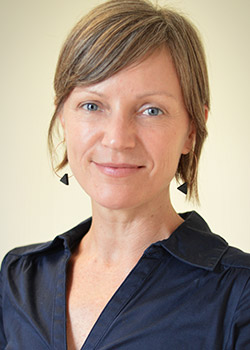
Instructional Assistant Professor
Department of Health Education and Behavior
Phone: (352) 294-2896
Email: mkholton@ufl.edu
Dr. Kim Holton joined the Department of Health Education and Behavior as an instructional assistant professor in 2018. Dr. Holton received her Ph.D. in Health Education and Behavior from the College of Health and Human Performance at the University of Florida in 2014. She also holds an M.S. in Zoology and B.S. in Ecology. She has many years of experience in health promotion practice, serving communities through her work with non-profits and employees through her work in higher education. Dr. Holton has been teaching yoga and meditation since 2002 and is a team member of the UF Mindfulness Program. She also serves on the UF & UF Health Shands Employee Wellness Committee and National Consortium for Building Healthy Academic Communities Research and Evidence-Based Practices Committee.
Dr. Holton’s research and instructional areas of interest include worksite health promotion, stress management, mindfulness, and complementary and integrative medicine. In the classroom, she encourages self-awareness and authentic connection to create a safe and productive learning environment.

Assistant Professor
Department of Health Education and Behavior
Phone: (352) 294-1801
Email: lhone@ufl.edu
Dr. Hone’s current research interests include characterizing the role of drinking venues in sexual aggression, specifically examining (1) how alcohol and cannabis use in high-risk drinking venues contribute to sexual aggression perpetration, as well as (2) which dispositional characteristics (e.g., sociosexuality — attitudes, behaviors, and desires related to casual sex) predispose certain individuals to frequent these venues, and (3) which contextual characteristics of these venues make them particularly risky. Her aim is to identify novel individual- and environmental-level targets for sexual aggression prevention.
In service of this aim, Dr. Hone’s completed NIH-funded alcohol administration study was designed to test alcohol’s effects on antecedents of sexual aggression, and she is interested in improving the generalizability of these studies. Dr. Hone is also interested in the application of evolutionary theory to examining sex differences in binge drinking, alcohol-related cognitive deficits, and alcohol-related regretted sex, in line with NIH’s directive to consider sex as a biological variable. Dr. Hone’s other research interests span predictors of sexual morality and mHealth interventions for substance use and risky sexual behavior.
Before joining the University of Florida, Dr. Hone was a research assistant professor of psychology affiliated with the Research Institute on Addictions at the University at Buffalo, where she received her M.P.H. with a focus on strategies for eliminating health inequities. Prior to joining RIA, she was a postdoctoral fellow at the University of Missouri – Columbia, affiliated with the Alcohol Health and Behavior Lab and the Social Cognitive and Addiction Neuroscience Lab. She received her M.S. and Ph.D. with an emphasis in evolution and human behavior from the University of Miami’s Health Division of Psychology. She received her B.A. in Physical Anthropology from the University of California – Santa Barbara, where she worked at the Center of Evolutionary Psychology.
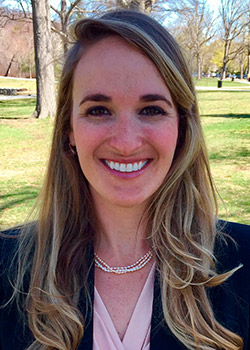
Assistant Professor
Department of Health Education and Behavior
Phone: (352) 294-1816
Email: djakeschoffman@ufl.edu
Danielle Jake-Schoffman, Ph.D. joined the faculty of the Department of Health Education and Behavior as an assistant professor in August 2018. Dr. Jake-Schoffman is a behavioral scientist dedicated to developing and implementing evidence-based strategies for chronic disease prevention and treatment, specifically those that leverage connected technologies (e.g., wearable sensors, mobile apps, and online social networks). Her research centers on technology tools for the promotion of physical activity and healthy eating and prevention and treatment of obesity and cancer, and she has contributed to a variety of projects to develop and test interventions supported by physical activity devices, apps, and social media. She has a particular interest in innovative methods for trial delivery and evaluation, including remotely delivered trials that use technology tools to engage and retain participants. Dr. Jake-Schoffman also has expertise in implementation science methods, including work to integrate faith-based physical activity and healthy eating interventions into church settings in both rural and immigrant communities.
Prior to joining the faculty of the Department of Health Education and Behavior, Dr. Jake-Schoffman completed a postdoctoral research fellowship in the PRACCTIS (Prevention and Control of Cancer Training in Implementation Science) program at the University of Massachusetts Medical School. She received her Ph.D. in Health Promotion, Education, and Behavior from the Arnold School of Public Health at the University of South Carolina, B.A. in Human Biology, and Secondary B.A. in Anthropological Sciences from Stanford University.
Dr. Jake-Schoffman is active in the leadership of the health technology special interest groups of the Society of Behavioral Medicine (SBM) and The Obesity Society (TOS). She has received numerous early career awards in recognition of her research from local and national organizations and has been selected for competitive national trainings focused on physical activity and public health, behavioral randomized clinical trials, optimization of behavioral and biobehavioral interventions, and innovative approaches to obesity prevention and treatment. She serves on the editorial board of the Journal of Public Health Management and Practice and is an ad hoc reviewer for 20 journals publishing research in behavioral medicine, health and digital health technologies, obesity prevention and treatment interventions, and public health approaches to health promotion.

Associate Professor
Department of Health Education and Behavior
Phone: (352) 294-1806
Email: djames@hhp.ufl.edu
Dr. Delores C.S. James is a tenured associate professor at the University of Florida (UF). She is an alumna of the College of Health and Human Performance (CHHP), having received both her master’s and doctoral degrees from the Department of Health Education and Behavior (HEB).
She is both a registered dietitian nutritionist and a health educator who has worked as a licensed professional in public health, hospitals, and private practice. She is a fellow of the Academy of Nutrition and Dietetics and was the first fellow of the Academy of Nutrition and Dietetics Weight Management Dietetics Practice Group. She is also licensed to practice in Florida. Dr. James is the past president of the Gainesville District Dietetic Association and a past research delegate to the House of Delegates for the Academy of Nutrition and Dietetics. She was the lead author of two position papers on promoting and supporting breastfeeding for the Academy of Nutrition and Dietetics. She is also a fellow of the American School Health Association.
Dr. James has expertise in program evaluation and qualitative and mixed methods research. She is also a trained focus group moderator. Dr. James has been recognized by her colleagues for her teaching and research. Dr. James is a past teacher of the year for CHHP, has received the HEB Faculty Research Award four times, and the HEB Faculty Leadership Award twice.
Dr. James is a Robert Wood Johnson Foundation (RWJF) Culture of Health Leader. This national leadership training program builds on her existing leadership skills to work with organizations, communities, health systems, and policymakers to build a culture of health in America. A significant part of her training focuses on:
Dr. James is the founder of the Electronic Community Health Advocacy Team (ECHAT), which is a research, advocacy, and education group. ECHAT develops and disseminates health education messages and programs using digital technologies to improve health outcomes, increase health equity, and create a culture of health in low-resource communities. ECHAT’s short health education videos have been screened at the Global Public Health Film Festival.
Dr. James is also the founder of the blog, Keep It Tight Sisters (KITS). KITS help women to love their bodies, foster a nourishing relationship with food, and achieve their health goals.
Dr. James is honored to be actively serving her community as the chair of the Affordable Housing Advisory Committee for the City of Gainesville.

Assistant Professor
Department of Health Education and Behavior
Phone: (352) 294-7029
Email: megan.mcvay@ufl.edu
Megan McVay, Ph.D., is an assistant professor in the Department of Health Education and Behavior. She completed her Ph.D. in Psychology (Clinical and Biological areas) at Louisiana State University and completed her clinical internship and postdoctoral training at Duke University Medical Center and Durham Veterans Affairs Medical Center.
Dr. McVay conducts research on behavioral aspects of weight management. Her current work is focused on initiation and engagement in evidence-based approaches to weight management among adults with obesity. This focus stems from recognizing that the majority of adults with obesity do not initiate evidence-based weight loss treatments. To address this, she is focused on 1.) developing and testing strategies that mobilize non-treatment seeking adults with obesity to enroll in empirically supported weight loss interventions and on 2.) identifying or developing weight loss interventions (including preventive interventions) that are more likely to be initiated and sustained by adults with obesity. This work includes a focus on using digital health tools to address these and other aspects of weight management. In 2015, Dr. McVay received a five-year career development grant from the National Institute of Heart, Lung, and Blood (NHLBI) to develop and pilot test a web-based intervention to increase initiation of weight loss treatments.
Dr. McVay is a member of several professional organizations including The Obesity Society (TOS) and Society of Behavioral Medicine (SBM), where she is a member of the Publication Council. She has received awards for research presentations from the Society of Behavior Medicine, The Obesity Society, and the American Society for Metabolic and Bariatric Surgery. She has published in leading journals, including American Journal of Preventive Medicine, Annals of Internal Medicine, Genetics in Medicine, and Translational Behavioral Medicine. She has also been selected for competitive, specialized NIH-funded training institutes in mhealth and behavioral randomized clinical trials.

Department Chair
Department of Health Education and Behavior
Phone: (352) 294-1821
Email: mmmm@ufl.edu
Dr. Maldonado-Molina’s research program centers around reducing health disparities in child and adolescent health, in alcohol use and alcohol-related consequences in particular, with a focus on vulnerable populations. Her work is characterized by the application of innovative statistical methods in prevention-oriented studies of youth and one of her areas of expertise is cultural processes associated with substance use in Latinx youth. Dr. Maldonado-Molina is a professor and chair at the Department of Health Education and Behavior at the University of Florida (UF). She is a past director of the UF Family Data Center, as well as an affiliate faculty member in the Institute of Child Health Policy, the UF Anita Zucker Center for Early Childhood Studies, and The Methodology Center at Penn State.
Dr. Maldonado-Molina has an impressive publication record that includes over 78 peer-reviewed publications, with a focus on the application of innovative statistical techniques to study the effects of context and structural interventions on behavioral and mortality outcomes. A recent research project, awarded by the National Institute on Minority Health and Health Disparities, is entitled “Post Maria Puerto Rican Families Relocated to Florida: A Multisite Study of Alcohol Misuse and Mental Health Problems”. The objective of this project is two-fold: 1.) examine migration and cultural stressors, alcohol misuse, and mental health problems in Puerto Rican families who migrated after Hurricane Maria; and 2.) examine prospective relationships to test cultural stress theory across distinct resettlement contexts.
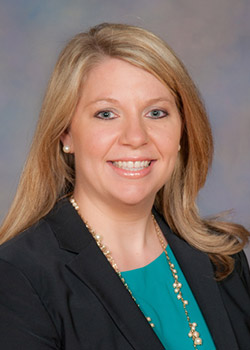
Instructional Assistant Professor, Internship Coordinator
Department of Health Education and Behavior
Phone: (352) 294-1635
Email: hmoses@hhp.ufl.edu
Dr. Holly T. Moses received her Ph.D. in Curriculum and Instruction from the College of Education at the University of Florida in 2013. A Master Certified Health Education Specialist (MCHES®), Dr. Moses holds both a master’s degree in health science education, as well as a bachelor’s degree in health science education from the University of Florida. Dr. Moses is currently an instructional assistant professor in the Department of Health Education and Behavior (HEB), and serves as the internship coordinator for the HEB undergraduate degree program. Additionally, Dr. Moses is the coordinator for the HEB online M.S. degree program.
Dr. Moses is a member of several professional organizations including National Eta Sigma Gamma, the American School Health Association, and the Society for Public Health Educators. Dr. Moses is currently serving in the second year of a six-year term for National Eta Sigma Gamma Board of Directors — two years each as vice president, president, and past president. At the university level, Dr. Moses serves as faculty sponsor for the Alpha Lambda chapter of Eta Sigma Gamma (ESG), as well as the School Health Interdisciplinary Program (SHIP).
Dr. Moses’ primary research and instructional areas of interest include: professional preparation and career development for health education majors; health education advocacy; foundations of health education and health promotion; community health; school health; child/adolescent health issues; bullying and cyberbullying; hazing and victimization. The title of Dr. Moses’ dissertation: Relationship between the Processes of Moral Disengagement and Youth Perceptions of Cyberbullying Behaviors During Their Final Semester of High School.

Graduate Coordinator, Associate Professor
Department of Health Education and Behavior
Phone: (352) 294-1813
Email: amy.mobley@ufl.edu
Amy R. Mobley, Ph.D., R.D., joined the faculty in the Department of Health Education and Behavior at the University of Florida in the fall of 2018. Dr. Mobley is a nutrition educator and registered dietitian with expertise in community nutrition research and outreach specifically related to nutrition education and obesity prevention. Her research goal is to better understand the multiple influences on dietary behavior and to develop corresponding interventions to improve health, especially in underserved populations. She aims to integrate research, teaching, and outreach to improve nutrition related programs and policies. Using qualitative and quantitative methods, she has conducted research to evaluate web-based nutrition education, dietary guidance, and feeding messages for low-income adults and families with young children and strategies for childhood obesity prevention particularly targeted to parents, with a special emphasis on fathers of preschool age children.
Prior to joining UF, Dr. Mobley was an associate professor in Nutritional Sciences at the University of Connecticut (2011-2018) and a clinical assistant professor in Foods and Nutrition at Purdue University (2006-2011). She also worked as a research scientist contractor for the Office of Dietary Supplements, National Institutes of Health (2002-2006) and as a nutrition communication and public relations manager for the American Dairy Association MidEast (1998-2002) prior to earning her Ph.D. Dr. Mobley received her Ph.D. in Nutrition from the University of Maryland, an M.S. in Human Nutrition from The Ohio State University, and a B.S. in Applied Nutrition from The Pennsylvania State University.
Dr. Mobley has received grant funding as both PI and Co-I from the National Institutes of Health and United States Department of Agriculture. She has successfully advised several doctoral, master’s, and undergraduate honors students in research and has received departmental, college, and university-level teaching awards and grants from both UConn and Purdue. Further, she was the recipient of the Nutrition Education for the Public Award for Excellence from the Academy of Nutrition and Dietetics and selected for the highly competitive Dannon Institute Early Career Leadership Institute. Dr. Mobley has served in several leadership capacities including the chair of the Nutrition Education and Behavioral Sciences Research Interest Section of the American Society for Nutrition and currently as a director at large for the Society for Nutrition Education and Behavior. She also serves on three editorial boards including the International Journal of Behavioral Nutrition and Physical Activity, Journal of Nutrition Education and Behavior, and the Journal of the Academy of Nutrition and Dietetics.
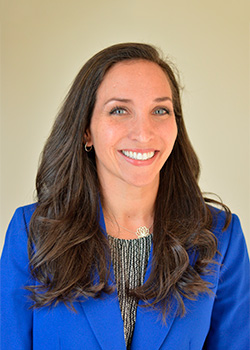
Instructional Assistant Professor
Department of Health Education and Behavior
Phone: (352) 294-1023
Email: ahoffmanossiboff@ufl.edu
Ashlee Ossiboff earned her Ph.D. in Health Education, with a cognate in Multicultural Issues in Health, as well as a M.S. in Health Promotion and Education from the University of Cincinnati. She also holds a M.A. in Clinical Psychology from Roosevelt University and a B.A. in Psychology from Southern Illinois University Edwardsville.
Before going into health education, Dr. Ossiboff worked as a substance abuse counselor and specialized in assessment. She also has experience working in community health programs and initiatives, as well as university wellness. Prior to joining the Department of Health Education and Behavior at the University of Florida in 2019, Dr. Ossiboff worked as the assistant director of fitness and wellness at Northwestern University.
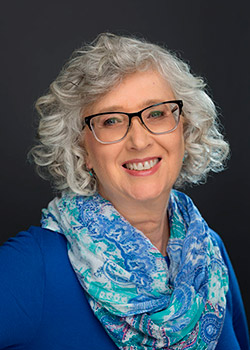
Instructional Associate Professor
Department of Health Education and Behavior
Phone: (352) 294-1807
Email: rodgersj@ufl.edu
Dr. Rodgers received her Ph.D. in Health Communication from the College of Journalism and Communications at the University of Florida. A Master Certified Health Education Specialist (MCHES®), Dr. Rodgers holds two master’s degrees in business management and health education and behavior from the University of Florida and a bachelor’s degree in sociology from the University of Arizona.
Dr. Rodgers’ research is interdisciplinary, cutting across several areas of communication to include social marketing and health. She is especially interested in how health organizations can promote an atmosphere of trust — both online and offline — that will lead to positive, healthy behavior change among audiences. Specifically, Dr. Rodgers’ research focuses on how individuals process health messages and how message characteristics influence individuals’ decisions to adopt certain behaviors. Her dissertation — a qualitative health communication study — unites these areas by analyzing how women with fibromyalgia conceptualize media and medical messages about their experiences and primary health concerns.
Dr. Rodgers’ teaching areas are varied, reflecting both her professional background as a former newspaper reporter and editor and public relations practitioner, and her academic experiences in business, health education, and mass communication.

Associate Chair, Instructional Associate Professor
Department of Health Education and Behavior
Phone: (352) 294-1810
Email: ssanders@hhp.ufl.edu
Sadie Sanders, Ph.D., CHES®, is an instructional associate professor and undergraduate coordinator in the Department of Health Education and Behavior. A graduate of CHHP, Sanders received her doctorate degree in health behavior with a minor in medical sociology. At this time, Sanders was named Graduate Student of the Year from the Department of Health Education and Behavior.
In addition to her teaching responsibilities, Sanders provides her expertise in the health research area as a focus group moderator and report writer. She has also served as an addictions therapist and substance abuse specialist, as well as an HIV/AIDS awareness and education trainer for Meridian Behavioral Healthcare, Inc. She is also the past secretary for the state of Florida’s Reducing Racial and Ethnic Health Disparity Advisory Committee, appointed by the Florida Secretary of Health.
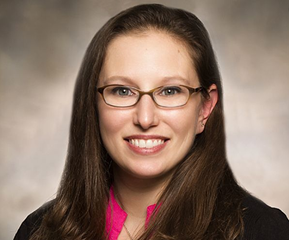
Assistant Professor
Department of Health Education and Behavior
Nichole Scaglione, Ph.D., CHES, is an assistant professor in the Department of Health Education and Behavior. Dr. Scaglione has over 10 years of experience leading federally-funded (i.e., DoD, CDC, NIH) projects aimed at reducing substance abuse and sexual violence in adolescents and young adults. Her research combines health behavior theory and mobile technologies to examine decision-making processes associated with drinking, drug use, and sexual risk, both globally and at the event level (during specific drinking/substance use occasions). She uses findings from her etiological work to develop and test interventions that target these processes to reduce individual and community risk for sexual violence.
Prior to joining the HEB faculty, Dr. Scaglione was a public health scientist at RTI International where she played a major role in the development and feasibility testing of a tailored, tablet-based sexual assault prevention program in Basic Military Training for the U.S. Air Force. Her current work includes a recently funded grant to expand and adapt this training for the U.S. Air Force Academy.
Other ongoing projects include a community-based evaluation of a bystander and violence prevention training for staff at alcohol-serving establishments (CDC U01), a rigorous evaluation of a sexual violence prevention program for high school boys (CDC R01), and secondary data analysis of event-level alcohol use and contextual risk factors associated with sexual risk in college.

Undergraduate Coordinator, Instructional Assistant Professor
Department of Health Education and Behavior
Phone: (352) 294-1607
Email: murphysm@hhp.ufl.edu
Suzanne Sneed-Murphy is currently the director of assessment for the College of Health and Human Performance. She is a member of a team responsible for providing college-wide leadership for all areas related to academic and student affairs including, but not limited to, curriculum, student outcomes assessment, data gathering, analysis and management, and report writing. Sneed-Murphy is also an instructional assistant professor lecturer for the Department of Health Education and Behavior. She received her master’s degree in health education and behavior in 2007 and her doctoral degree in health and human performance in 2011. Both degrees were completed in the College of Health and Human Performance at the University of Florida.
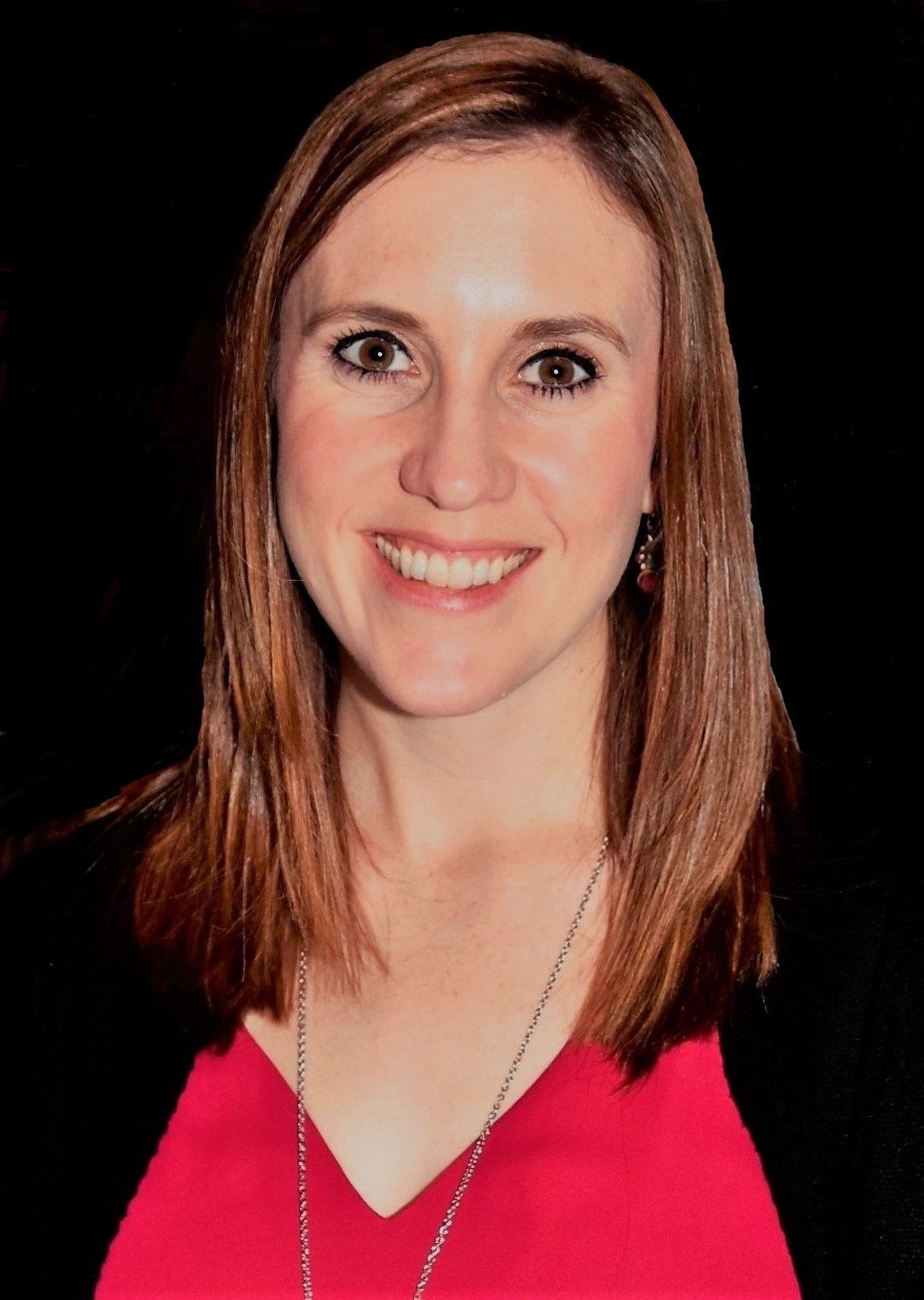
Graduate Program Academic Advisor
Department of Health Education and Behavior
Phone: (352) 294-1803
Email: jennifer4@ufl.edu
Jenny Neelands’ responsibilities include providing an advanced level of support for the department’s educational programs in all of their applications with an emphasis on the graduate programs. She also assists with communication and marketing efforts.
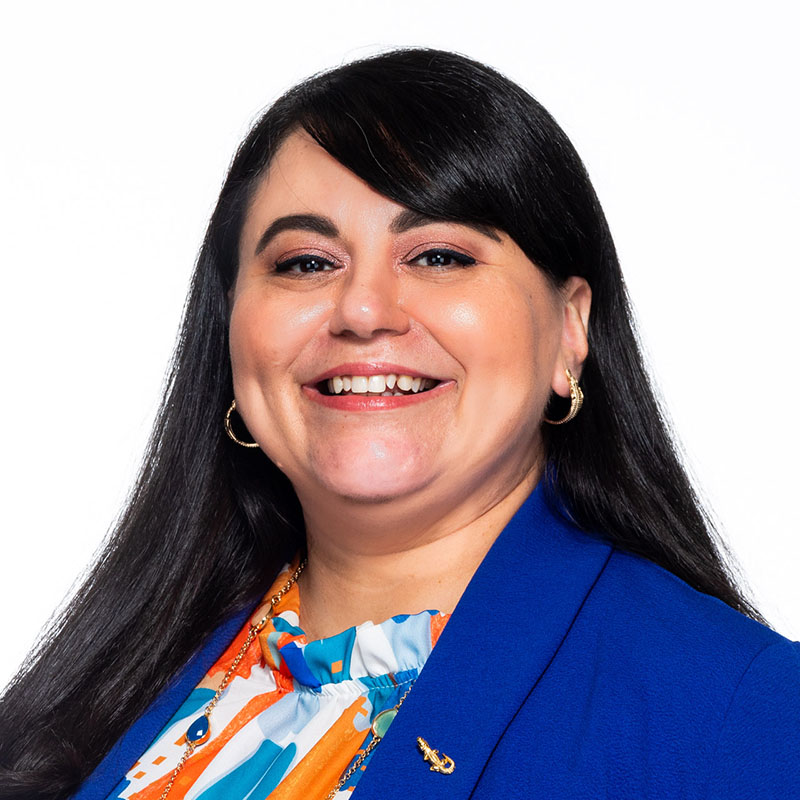
Director, GatorWell Health Promotion Services
Department of Health Education and Behavior
Dr. Monica C. Webb completed a B.S. in Health Science Education from the University of Florida, a Master of Public Health from the University of North Florida and returned to UF for a Ph.D. in Health Behavior. Dr. Webb has over 20 years of experience in health education, serving as a college health educator, middle school health teacher, a university faculty member, and most recently, director for GatorWell Health Promotion Services. As a Certified Health Promotion Specialist, she leads her team to develop innovative approaches to address high-risk health behaviors among college students.
Over the course of her career, Dr. Webb has championed wellbeing for students from kindergarten to college. She has served in various professional organizations and worked to strengthen the health promotion profession. Dr. Webb previously chaired the Healthy Campus Leadership Team through the American College Health Association. The Healthy Campus Framework, empowering campuses for 30 years, evolved under her leadership to focus on campus holistic wellbeing. Dr. Webb also served on the board of directors for the American College Health Association from 2021-2023. She continues to remain active in various professional organizations and works to champion lifelong wellbeing among students.
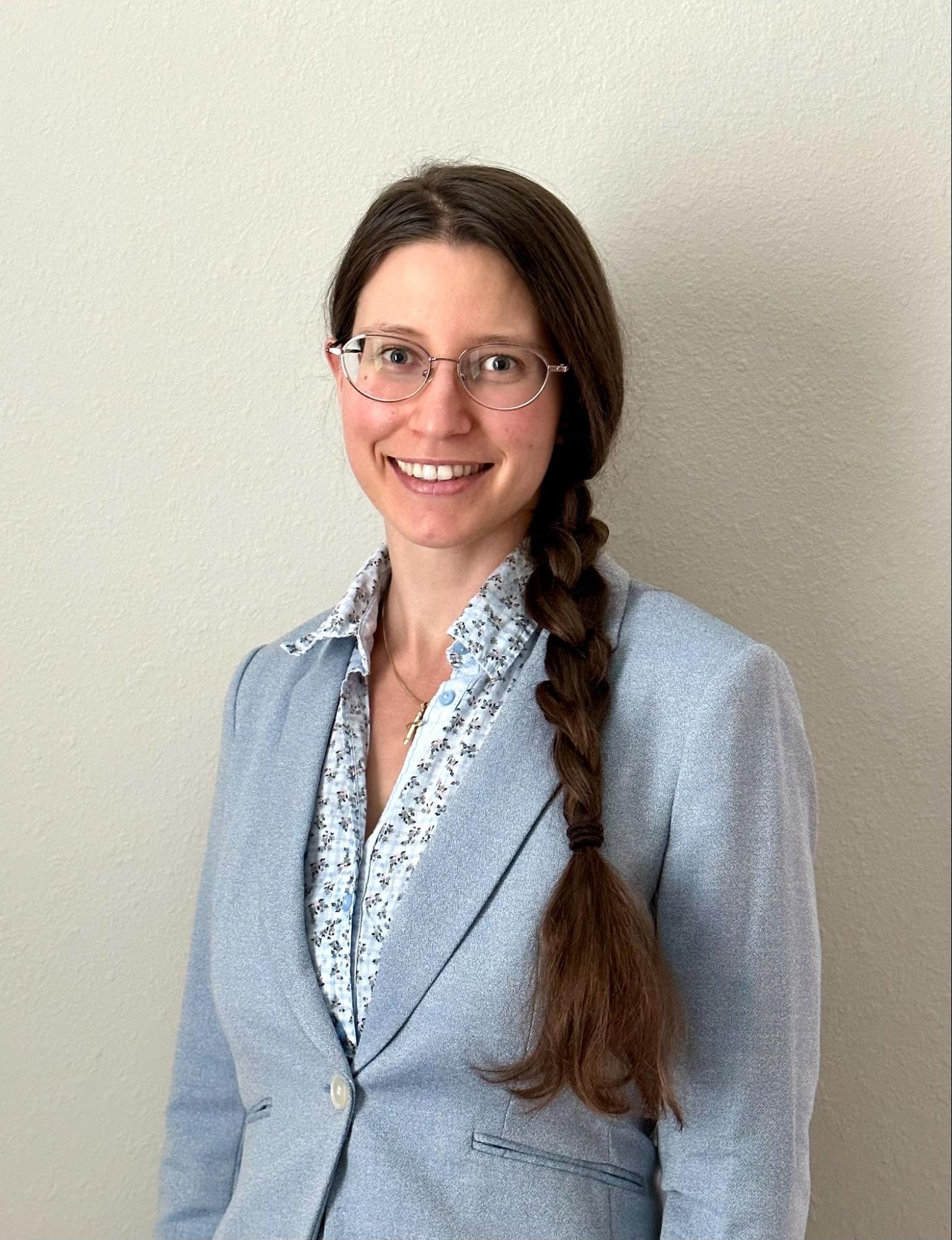
Adjunct Lecturer
Department of Health Education and Behavior
Dr. Ricarda Foxx Ph.D., CHES® is an adjunct lecturer in the Department of Health Education and Behavior (HEB). After receiving her B.S. in Cognitive Science at the University of Osnabrueck, Germany, Dr. Foxx completed her master’s and doctoral degrees in HEB.
Dr. Foxx has taught or assisted with various courses in HEB including Research Methods and Planning, and Implementing and Evaluating Health Education and Promotion Programs. Dr. Foxx’s research interests include behavioral economic approaches to address physical activity, screen time and sedentary behavior, as well as substance use behaviors. She has led or assisted with numerous research projects surrounding behavioral economics of cannabis use and physical activity, including cross-sectional, longitudinal and experimental studies. In addition to research in HEB, she has also worked with the Area Health Education Center (AHEC) in promoting and facilitating smoking cessation classes.
To learn more about the University of Florida’s online Master of Science in Health Education and Behavior and download a free brochure, fill out the fields below. You can also call (888) 533-6944 to speak to an enrollment advisor.